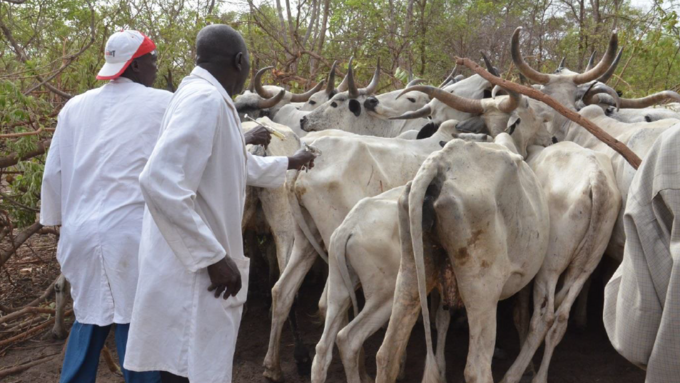Improving Health of Nomadic Populations in Chad
16.05.2017 by Sabina Beatrice-Matter
In Chad, over 78% of the total population lives in rural areas. Accessing health services is often difficult given long distances, a limited number of health centres, shortages of qualified health workers and insufficient medical equipment. Nomadic populations in particular suffer from the consequences of limited access to health services. Swiss TPH, together with its partners, currently implements a project in two districts in Chad to improve health of rural and nomadic populations.

To reduce mortality and morbidity in Chad, Swiss TPH, together with the Swiss Agency for Development and Cooperation (SDC) and the Centre de Support en Santé Internationale (CSSI) is currently implementing the Projet d'appui aux districts sanitaires du Tchad (PADS) in the districts of Yao and Danamadji. Since 2014, the project combines prevention activities, capacity building, operational research and health financing to improve access to quality health services especially for the most vulnerable groups including mothers, children and nomadic (or pastoralist) populations.
Most recently, the project team, in collaboration with the Ministry of Health, conducted a joint human and animal health campaign for mobile pastoralists. Such joint campaigns in the spirit of a "one health" approach - thus looking both at animal and human health - are appreciated by the nomad populations who depend very much on their livestock. Sharing logistical and transport cost of veterinary and medical services also helps reduce costs, making mixed campaigns more efficient.
During three consecutive vaccination rounds, over 2'300 women were vaccinated the first, second or third time against Tetanus. 6'500 children were vaccinated first, second or third time against typical childhood diseases such as polio and measles and received anti-parasitic medicines and vitamin A. More than 700 insecticide-treated nets were distributed and over 400 pregnant women received antenatal care. In addition, nearly 20'000 cattle were vaccinated against pasteurellosis. "Integrating a communications approach in these vaccination campaigns has been crucial," said Boukari Ouédraogo, Swiss TPH. "Nomadic populations in our targeted regions are now more aware of existing health services and how they can access them."
To further improve access to quality health services, the project will build and renovate health facilities, procure equipment and medicines, and train health workers. In terms of governance, the project will support planning and financial management and enhance the health information system. The team will also organise additional communication campaigns to spur demand for health services.
The PADS project is funded by SDC and implemented by Swiss TPH and CSSI in partnership with the Ministry of Health in Chad.
Stay connected
Subscribe to our newsletter and get all the latest research news, project updates, course and event listings from Swiss TPH.